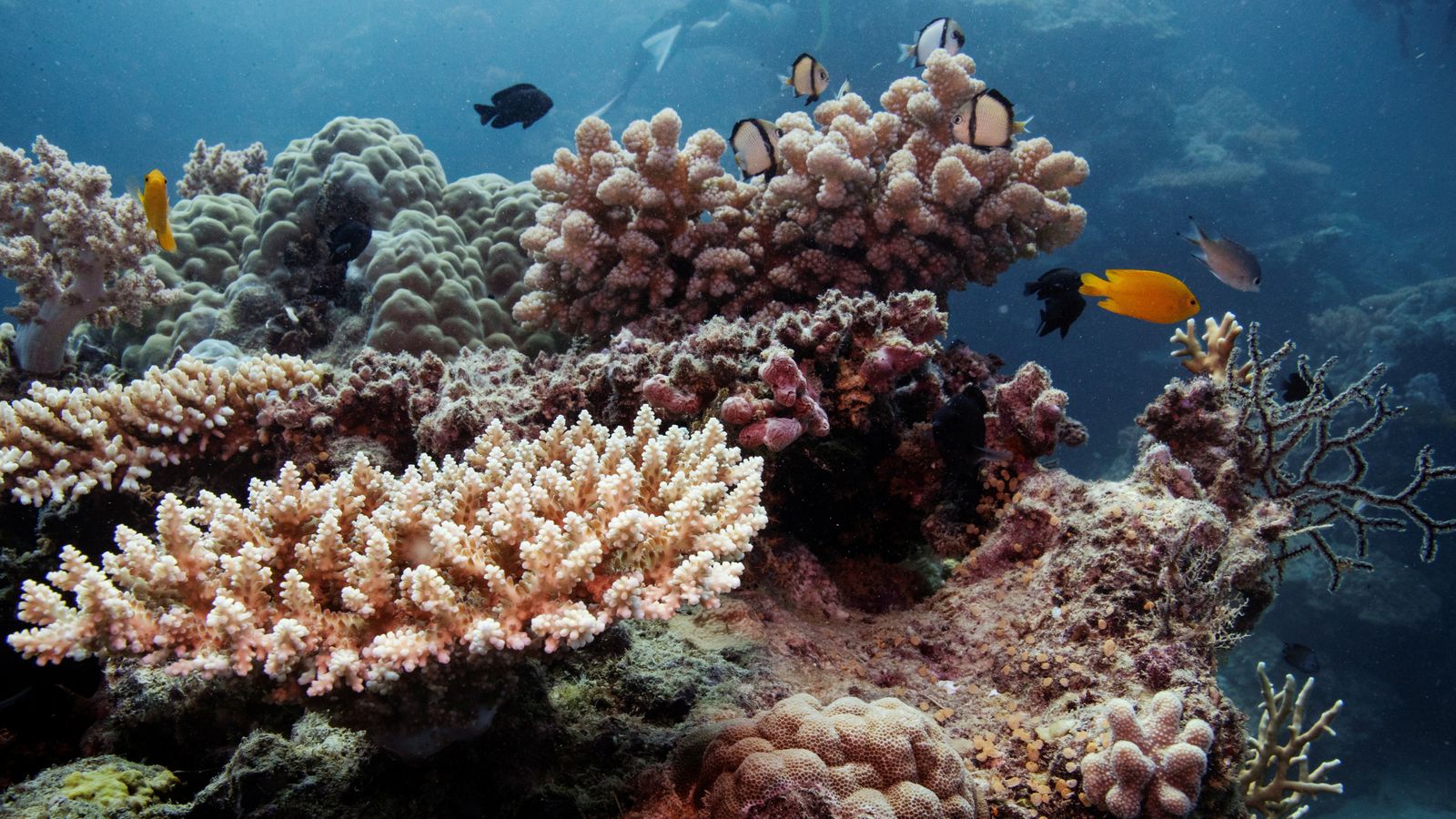Australia’s environment minister has said her government will lobby against a recommendation by a UN panel that the Great Barrier Reef should be listed as a world heritage site that is “in danger”.
UNESCO has said the world’s biggest coral reef ecosystem has been significantly impacted by climate change and the warming of the oceans.
Frequent bleaching events are threatening the reef, including four over the last seven years and the first during a La Nina phenomenon, which typically brings cooler temperatures, this year.
Bleaching happens when the water warms too much, causing corals to expel the colourful algae living in their tissues and turn white.
Officials from the UN cultural agency and the International Union for Conservation of Nature released a report on Monday warning that without “ambitious, rapid and sustained” climate action, the world’s largest coral reef is in peril.
The report, which recommended shifting the Great Barrier Reef to endangered status, followed a 10-day mission in March to the reef off Australia’s northeast coast that was added to the World Heritage list in 1981.
Canberra has lobbied for years to keep the reef – which contributes A$6.4bn (£3.6bn) to the economy – off the endangered list as it could lead to losing the heritage status, taking some shine off its attraction for tourists.
Mass nude photo staged on Sydney’s Bondi Beach for skin cancer awareness
Australia snake attack: Boy bitten and dragged into swimming pool by 10ft python
‘Bondi Beast’ serial rapist identified by Australian police almost 40 years after first attack
Prior to COVID-19, around two million tourists visited it every year, providing jobs for 64,000 people.
Environment minister Tanya Plibersek said the report was a reflection on Australia’s previous Conservative government, which was voted out of office in May elections after nine years in power.
Read more: Rolls-Royce and easyJet test aircraft engine running on hydrogen
She said the new centre-left Labor party government has already addressed several of the report’s concerns, including action on climate change.
“We’ll very clearly make the point to UNESCO that there is no need to single the Great Barrier Reef out in this way” with an endangered listing, Ms Plibersek told reporters.
“The reason that UNESCO in the past has singled out a place as at risk is because they wanted to see greater government investment or greater government action and, since the change of government, both of those things have happened,” she added.
The new government has legislated to commit Australia to reduce its greenhouse gas emissions by 43% below the 2005 level by 2030.
The previous government only committed to a reduction of 26% to 28% by the end of the decade.
The independent Great Barrier Reef Foundation said the recommendation to add the reef to the endangered list was premature.
“The Great Barrier Reef is a wonder, she’s got her challenges, but she’s definitely not on her last legs in any case,” managing director Anna Marsden said.










